In my last letter I introduced Soulmanac and promised that I’d parse out the reasons for my love of seasonal living in another letter. This is that. Sort of.
I say “sort of” because there’s so much I could say and I don’t want to hurry to find the words to express what, if I’m honest, are only half-formed thoughts. And so, instead of offering you a comprehensive explanation of why I believe that seasonal living holds a key that can free us from much of what binds us in our tech obsessed, consumerist and disconnected society, I want to tell you a story. Perhaps it will help us make a start with wondering together about if and/or why seasonal living matters.
The story isn’t mine but I can’t tell you who it belongs to either. I did my research but I can’t find a single source. This makes me like the story more. It gives it a mythic quality which seems to invite creativity in the telling. I’m mainly basing my telling on this version but I am adding a few of my own flourishes.
The Four Princes and the Cherry Tree
A king had four sons. To teach them an important lesson he decided to ask them to visit a cherry tree in the deep forest of their kingdom.
During the peak of winter, he asked his eldest son to go and see the tree and bring back a description of the tree. The prince came back and told his father that the tree was barren, old, and hopeless. He explained that even the birds were not coming near the tree. “It looks useless,” he said before suggesting that the tree be cut down and used for firewood.
During the middle of the spring, the king asked his second son to visit the tree and bring back a description of the tree. The prince came back and told his father and brothers that the tree was not barren but covered in beautiful cherry blossoms. “It looks young and promising,” he told them with delight. “The tree is surrounded by butterflies and bees who are enjoying its flowers.”
Then, in the summer, the king sent his third son to go to see the tree and come back with a description. When this prince returned, he told his family that there were no blossoms but the tree was, indeed, beautiful, loaded with delicious cherries and looking mature and valuable. “Many birds are living on the tree and are enjoying the fruits,” he explained.
Finally, in autumn, the king asked his youngest son to visit the tree and bring back a description of the tree. The prince returned and reported that he had seen no fruit or flowers as his brothers had described. “But it still looks beautiful,” he stressed. “It has coloured leaves in many shades of gold, red and orange. I was so captivated with it that I would like to paint it.”
Then the wise king asked his sons “What did you learn from this experience?”
The other three princes were still thinking when the youngest son shared his understanding.
“First, like the tree, we experience different seasons of life and we are greatly affected by them. Second, we should not be hasty and judge our life based on only the current season. Third, every season has a purpose even if it is hard to see what it might be. Finally, no matter which season is current, in life as in nature it will soon change again.”
Let’s pause here. You may like to read the story again or ponder one or two of these questions:
What do notice in the story or in yourself as you reflect on it?
Which words, phrases or images stand out to you?
Where do you see yourself in the story?
What is this story offering to you?
What questions do you have?
One of the reasons I like and chose to share this version of the story is that, in this telling, only the youngest prince offers his insights. I enjoy the detail that the other brothers were still thinking when their youngest brother spoke. It makes me wonder what the other brothers might have added.
For example…
I wonder if the oldest brother, who saw the tree in winter, might have expressed regret for judging a quiet season so harshly when all that was required was patience…
I wonder if the second brother, who saw the tree in spring, might have reflected on the dependence of renewal on rest, perhaps reframing winter as the “midwife of spring”…
I wonder if the third brother, who saw the tree in summer, might have recognised that, while a life’s value is seen more clearly when clothed with abundance and ease, its true value is held deeper. I wonder if this prince might have encouraged his brothers to celebrate those seasons in life that are characterised by ease and abundance without becoming afraid of the others…
I wonder what you would add…
As much as I’ve enjoyed turning this story over in my mind, the more I’ve sat with it the more I’ve realised that it offers, at most, a taste of the wisdom of the seasons. And a taste is good. But if we want more (which I do) or we long to fully digest that wisdom and really integrate it into our way of looking at ourselves, our relationships and our world (which, again, I do), I have a hunch that we’ll need to commit to more than reading or reflecting. To allow the wisdom of the seasons to reach our souls - the very depths of our being - we’ll likely need to listen with not only our ears and our minds but with our lives.
Listening with our lives might sound poetic and abstract but really it points us to something quite concrete. It means being attentive to what this season, the one that is unfolding around us, today, is offering us now. It means noticing and honouring the subtle shifts as the seasons cycle. It means seeking to be present to the gifts, challenges and invitations of each season as they emerge and fade.
I’m not sure it’s easy to listen with our lives but the good news is that most of us get many chances to listen. If the wisdom of the seasons lies in the lessons they have to teach us, the kindness of the seasons lies in their annual repetition of those lessons. The seasons never tire of offering us their wisdom and, like any good teacher, they know how to share their wisdom in ever deepening ways. We can begin to pay attention at any time and it doesn’t need to be complicated. At least I hope not. This Soulmanac project has energy for me precisely because it feels simple and accessible. We don’t need to be overly intense about it. I don’t want to assume I know how those who are accompanying me are approaching this journey but I’m telling myself not to take it too seriously. My intention is simply to play with noticing what’s happening around and within me as I seek out small and scrappy ways to savour and celebrate what is here, now. My hope is that, somehow, this will open us to hearing more deeply the Divine wisdom that speaks through the seasons. And, who knows, perhaps if we listen long and deeply enough we will become so oned to that wisdom that it begins to speak through our lives too.
Are you curious to find out?
If you’ve already joined me for this Soulmanac adventure, thank you. If not but something in this letter has piqued your curiosity, I’d love you to consider coming along for the ride. You can read more here. I’ll be writing these seasonal letters to my paid Substack community and I’m hoping to begin next week. You are welcome to join as a companion, a collaborator, a cheerleader or a friendly witness - whatever feels good to you. An annual subscription is £25 or you can pay monthly, if you prefer. If, though, this is unaffordable for you and you'd still like to join, please do reach out and I’ll add you for free, no questions asked because I trust you. You can email me at jennifer.goodyer@gmail.com




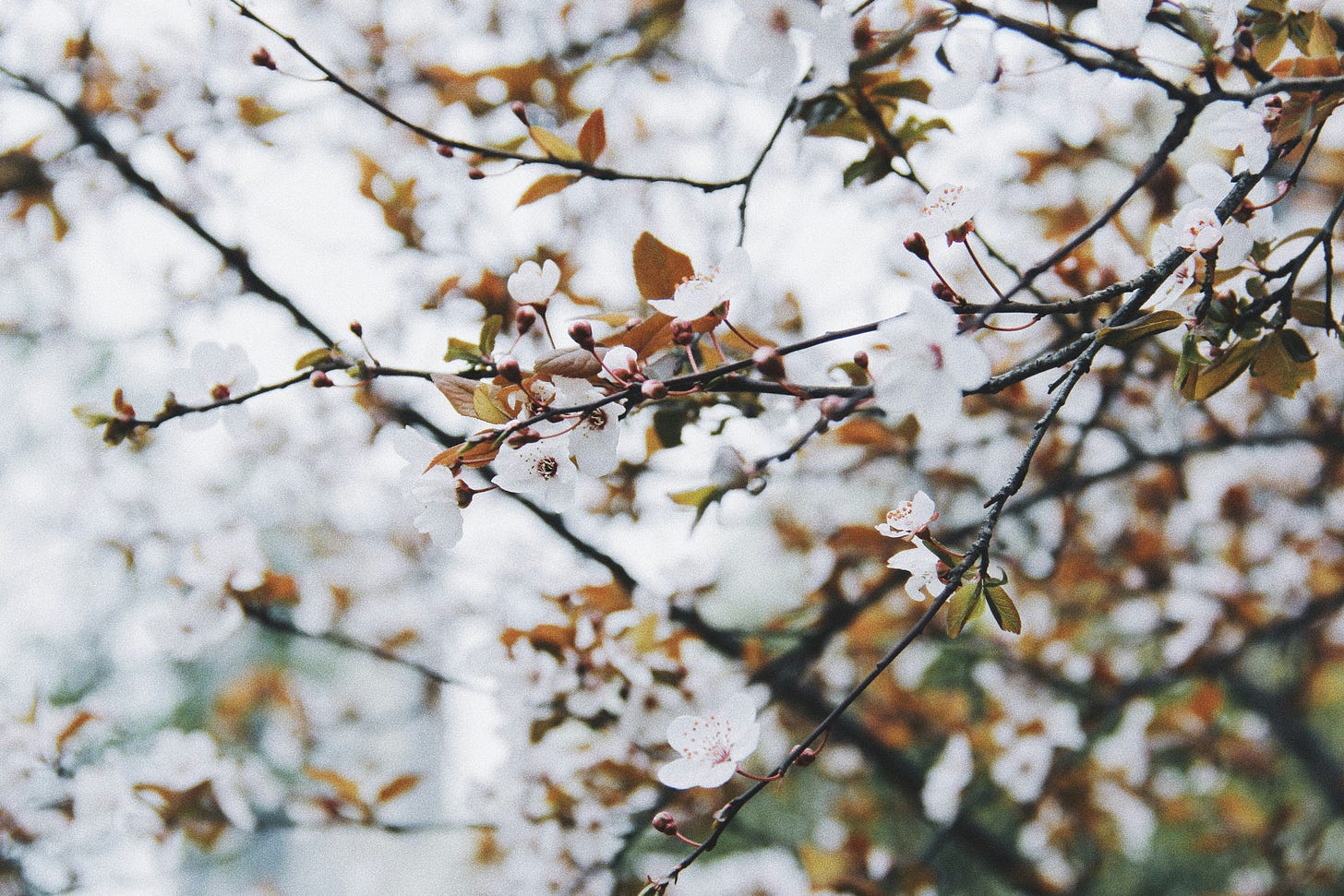
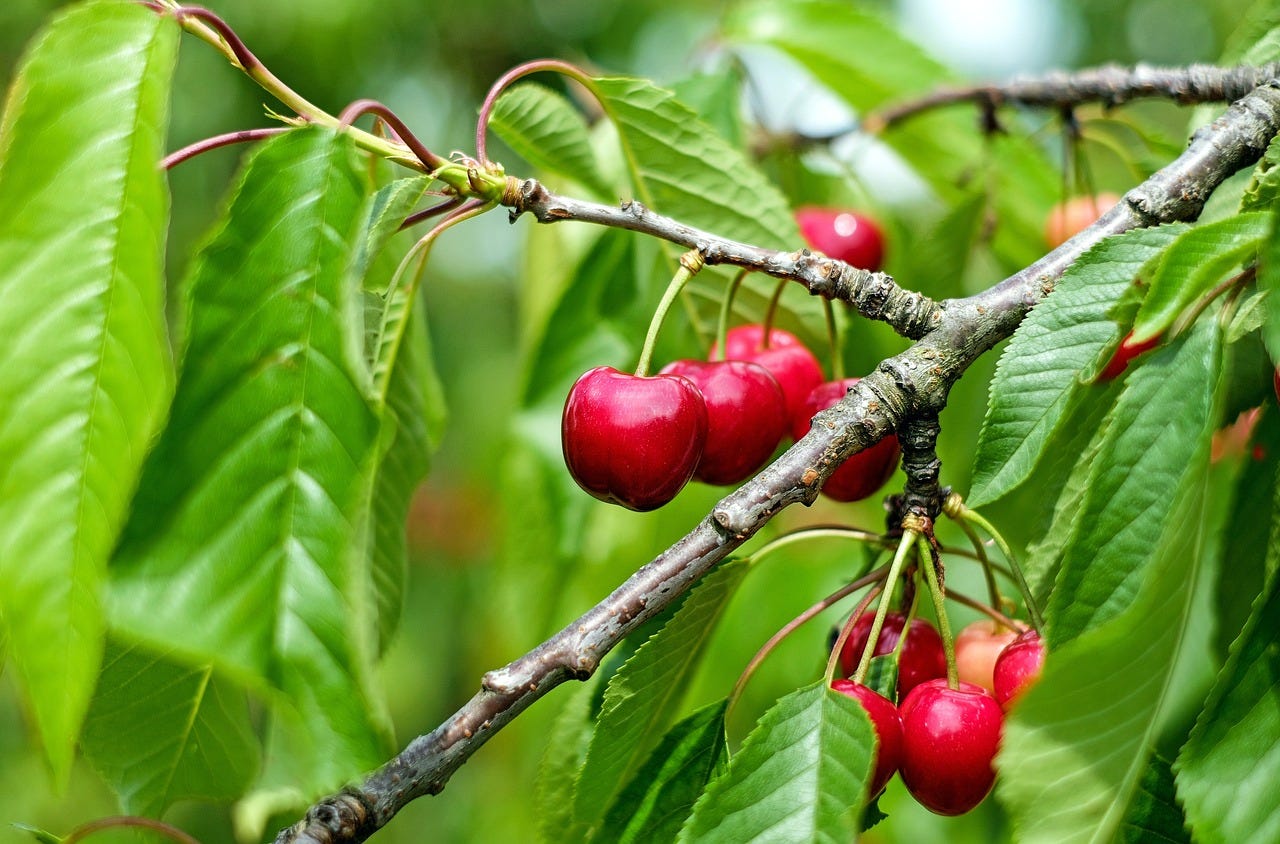
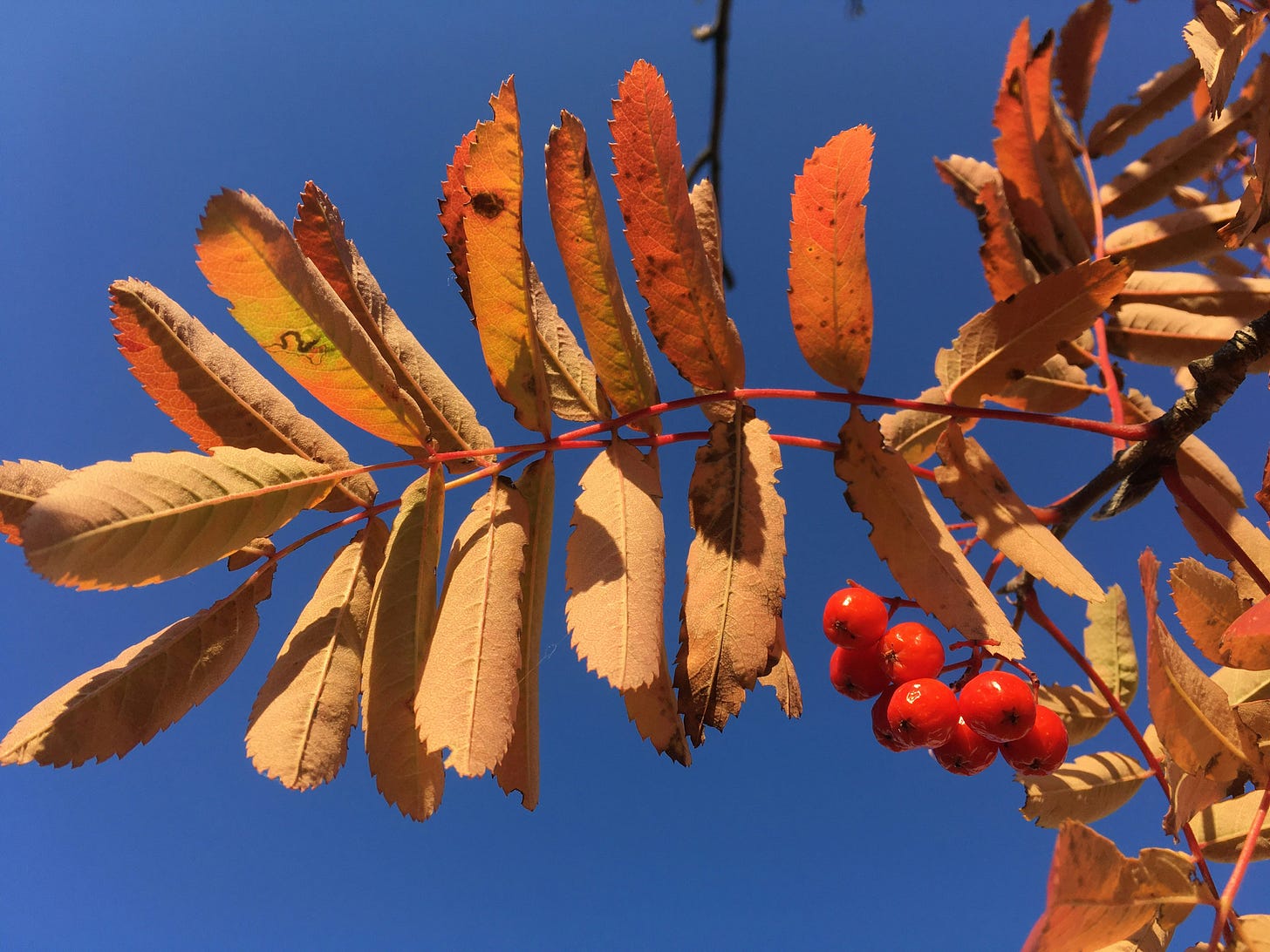
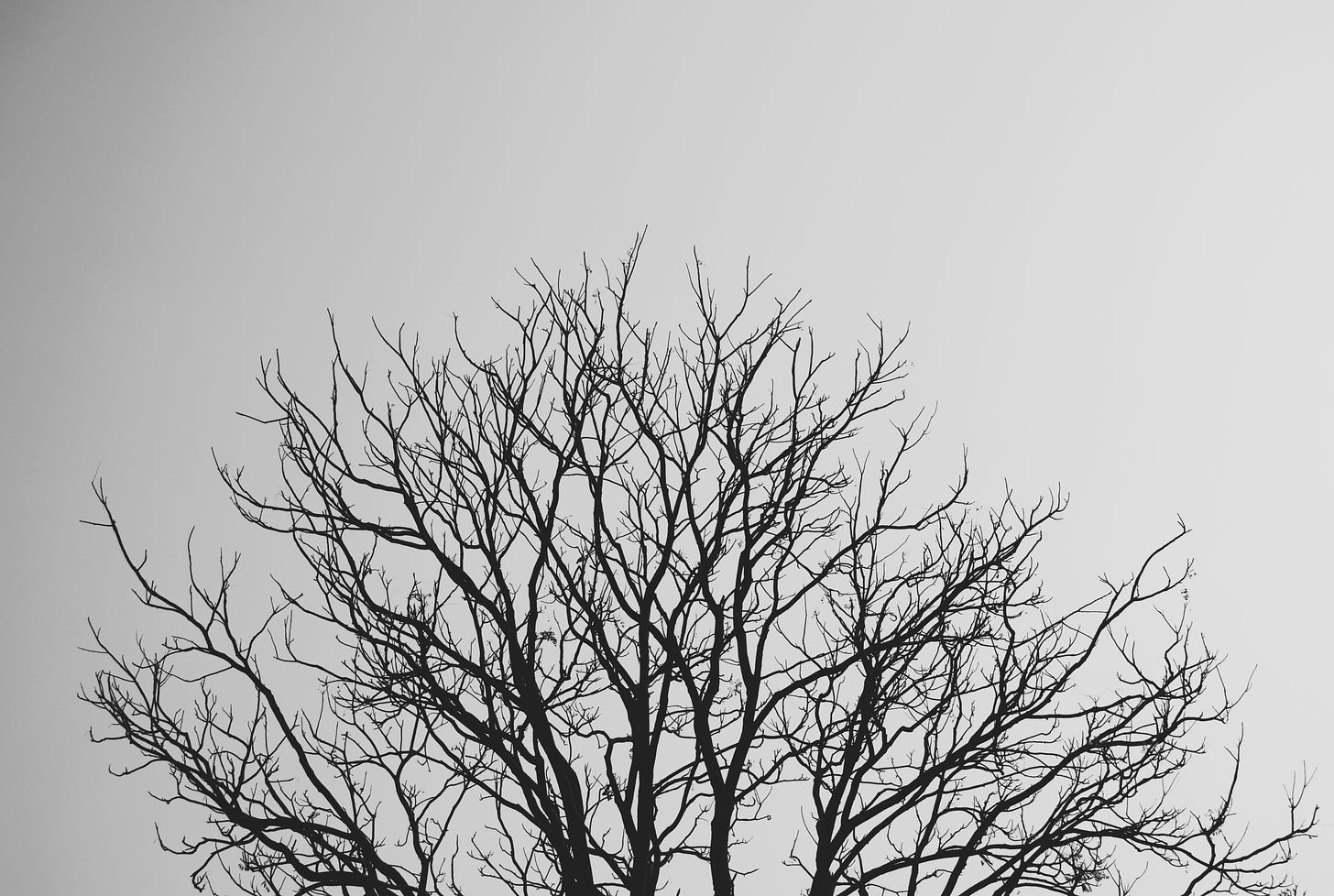

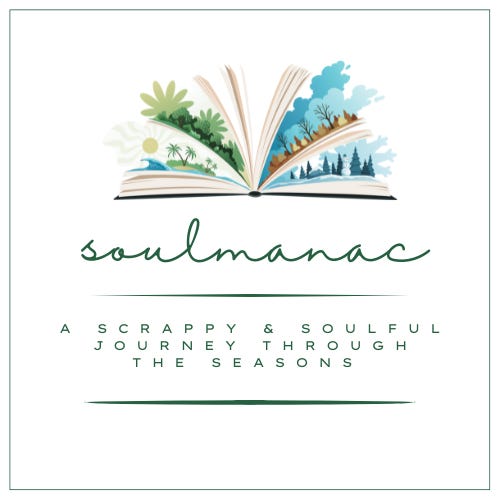
Over the past week or so I have found myself pondering this story of the seasons and how each season is demonstrated to have a value. I have been challenged by witnessing a dearly loved family member aging and suffering with dementia.
It is tempting to think that this is a barren period with no prospect of future blossoming. But maybe the blossoming can be found in others whose lives have been touched by this wonderful person. God’s ways are a mystery and often truth is to be found in a very counter intuitive way. This is giving me comfort as I value and honour the life of my dearly loved relative.